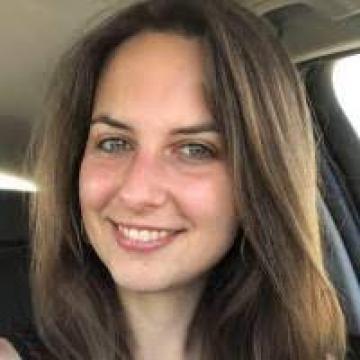dr. Sophie Van Welden (PhD)

Postdoctoral researcher
– IBD research unit (Faculty of Medicine and Health Sciences, UGent); IRC-VIB-UGent
– Centre of Excellence in Mycotoxicology & Public Health, Faculty of Pharmaceutical Sciences (UGent)
Principal investigator: prof. Debby Laukens (PhD)
Research focus
Intestinal hypoxia occurs when local oxygen demand exceeds oxygen supply and is therefore an important hallmark of chronic inflammation such as inflammatory bowel disease (IBD), but also colorectal tumors (CRC). To counter the hypoxic challenge and ensure their survival, mucosal cells induce evolutionary conserved adaptive responses mediated by hypoxia-inducible factors (HIFs) and NFkB under the control of oxygen-sensitive prolyl hydroxylases (PHD1, 2 and 3). How the oxygen sensing machinery contributes to the pathogenesis of IBD and CRC is still not fully understood and is the main focus of my research. The ultimate goal is to identify novel therapeutic targets and treatment approaches that could benefit IBD and/or CRC patients.
During my PhD, I studied the cell-specific contribution of PHD1 in preclinical mouse models of ileal and gut inflammation. For this, we have several immune, epithelial, fibroblast and endothelial-cell specific cre mouse lines available, enabling cell-type specific gene modulation.
As a postdoc, I extended this research line by including the preclinical investigation of intestinal complications, including fibrosis and CRC. To study CRC, I established both chemical and genetic mouse models that are representative for inflammation-induced and sporadic microsatellite stable CRC. These models are used to discern discriminating signaling pathways between inflammation-dependent and -independent CRC, to test novel therapeutics or combination therapy with immunotherapy and to generate organoid and cell cultures for further in vitro mechanistic studies.
Biography
I graduated as a bio-science engineer: cell-and gene biotechnology from the University of Ghent (Belgium) in 2011, and obtained a PhD degree in Health sciences on ‘Prolyl hydroxylase domain-containing protein 1 as potential therapeutic target for inflammatory bowel disease’. After finishing my PhD in 2017, I continued my research as a postdoctoral fellow by the Research foundation of Flanders (FWO) in the same IBD research unit at Ghent University.
In 2018, I spent 4 months at TU Dresden (Germany) to familiarize myself with different genetic animal models of CRC and the associated down-stream analyses. Afterwards, I introduced this preclinical colorectal cancer research in the research activities of the IBD research unit.
In 2020, I received a postdoctoral fellowship for another 3 years from Ghent University (BOF) and my first cancer research grant on the role of prolyl hydroxylase 1 in colitis-associated cancer from the ‘Belgian Inflammatory bowel disease Research and Development’ (BIRD).
Research team
- Febe Vertriest - doctoral fellow
Key publications
- The Quorum Sensing Peptide EntF* Promotes Colorectal Cancer Metastasis in Mice: A New Factor in the Microbiome-Host Interaction. BioRxiv. 2020. Doi: https://doi.org/10.1101/2020.09.17.301044
Contact & links
- Lab address: Medical Research Building 2 (ground floor, entrance 38), Corneel Heymanslaan 10, 9000 Ghent
- Laukens team: Intestinal barrier signaling in disease and therapy
- ORCID
- Sophie Van Welden is interested to receive invitations for presentations or talks